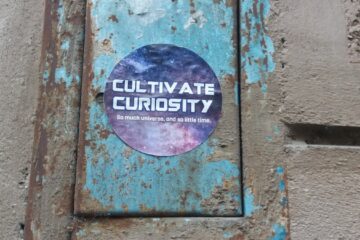After my stroke, I experienced firsthand the lack of resources and guidance available to survivors. Once acute care ends, support often disappears, leaving survivors to figure it out on their own. Survivor Science was born from this gap. We aim to create a hub where survivors can connect, access reliable information, and share experiences that make the journey a little easier.
The “Wild West” of Post-Acute Care
The recovery landscape after a stroke often feels like the wild west—unpredictable and lacking clear guidance. Many survivors are left to navigate on their own, with no centralized resources. This is where Survivor Science comes in. We’re building a hub for survivors, a place to access practical advice and a supportive network so people don’t have to go it alone.
Learning from My Own Recovery
Looking back, I realize how much time and effort I could have saved if there had been a centralized resource when I was starting out. My recovery journey has taught me just how valuable timely guidance can be, and I’m passionate about making this path easier for others. Survivor Science exists to provide that essential support and reduce the frustration of trial and error.
Building a Survivor-Led Network
One of the biggest differences with Survivor Science is that it’s led by survivors, for survivors. Many organizations focus primarily on fundraising, while our mission is to offer practical, day-to-day support. From survivor-led discussions to community-driven resources, we’re creating a space where survivors from all backgrounds can find reliable guidance and a sense of belonging.
Looking Forward
In the coming years, I see Survivor Science becoming a leading voice in the stroke survivor community, advocating for centralized resources and building partnerships that directly benefit survivors. With over 800,000 new strokes each year in the U.S. alone, the need for a united, survivor-focused support network is clear, and we’re here to build that.
Survivor Science is about more than just resources—it’s about connection, collaboration, and a shared determination to make this journey less lonely. I’m excited to watch our community grow and to help survivors everywhere access the support they need and deserve.Building Survivor Science: A Community for Stroke Survivors
After my stroke, I experienced firsthand the lack of resources and guidance available to survivors. Once acute care ends, support often disappears, leaving survivors to figure it out on their own. Survivor Science was born from this gap. We aim to create a hub where survivors can connect, access reliable information, and share experiences that make the journey a little easier.
The “Wild West” of Post-Acute Care
The recovery landscape after a stroke often feels like the wild west—unpredictable and lacking clear guidance. Many survivors are left to navigate on their own, with no centralized resources. This is where Survivor Science comes in. We’re building a hub for survivors, a place to access practical advice and a supportive network so people don’t have to go it alone.
Learning from My Own Recovery
Looking back, I realize how much time and effort I could have saved if there had been a centralized resource when I was starting out. My recovery journey has taught me just how valuable timely guidance can be, and I’m passionate about making this path easier for others. Survivor Science exists to provide that essential support and reduce the frustration of trial and error.
Building a Survivor-Led Network
One of the biggest differences with Survivor Science is that it’s led by survivors, for survivors. Many organizations focus primarily on fundraising, while our mission is to offer practical, day-to-day support. From survivor-led discussions to community-driven resources, we’re creating a space where survivors from all backgrounds can find reliable guidance and a sense of belonging.
Looking Forward
In the coming years, I see Survivor Science becoming a leading voice in the stroke survivor community, advocating for centralized resources and building partnerships that directly benefit survivors. With over 800,000 new strokes each year in the U.S. alone, the need for a united, survivor-focused support network is clear, and we’re here to build that.
Survivor Science is about more than just resources—it’s about connection, collaboration, and a shared determination to make this journey less lonely. I’m excited to watch our community grow and to help survivors everywhere access the support they need and deserve.

